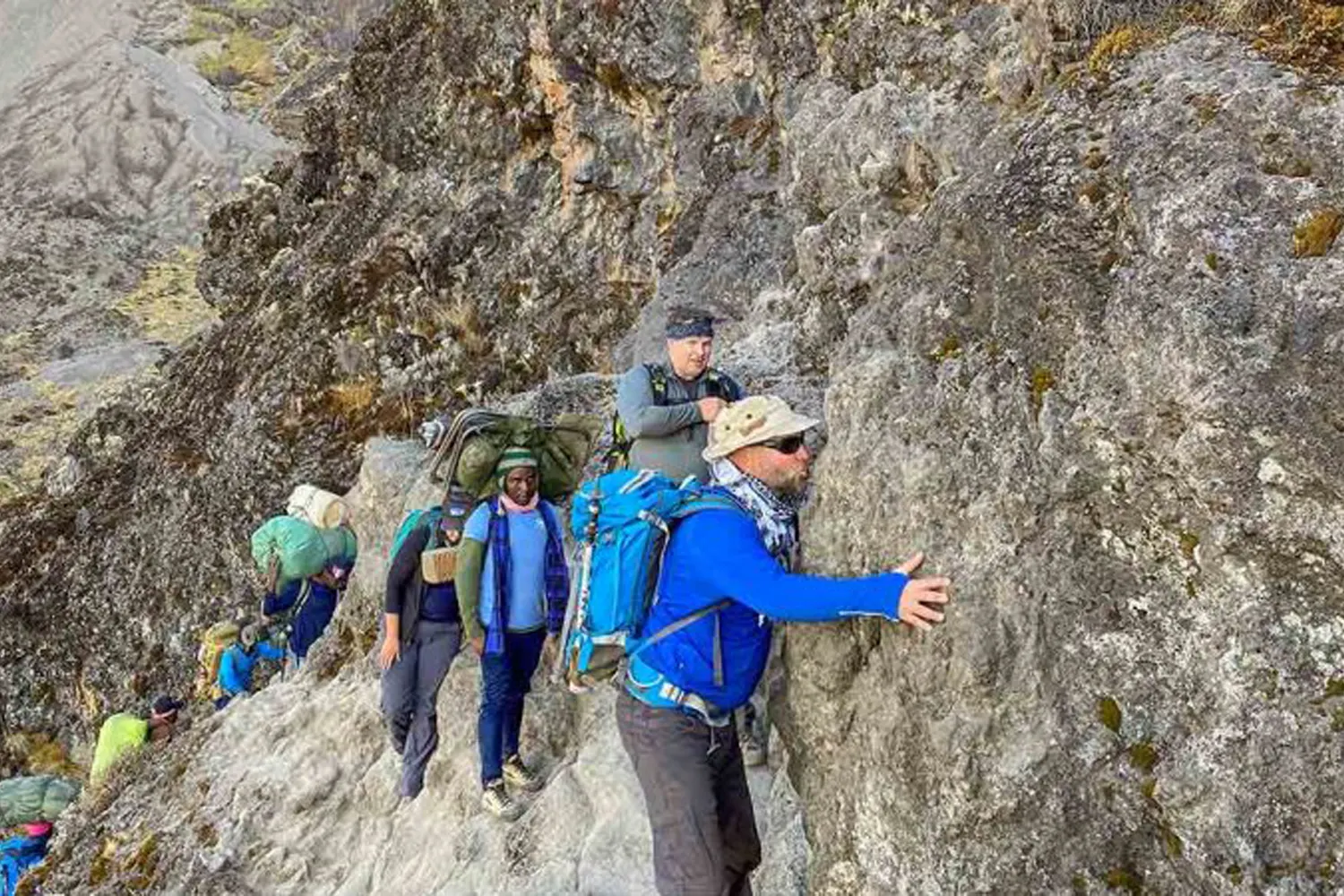Complete Fitness and Altitude Preparation Plan for Climbing Kilimanjaro
A successful Kilimanjaro climb starts long before you step foot in Tanzania. It begins with preparation—both physical and mental. The Kilimanjaro Training Program is your roadmap to reaching the summit safely and confidently. While no technical climbing skills are required, this is a demanding trek with steep ascents and high altitudes. You’ll need endurance, strength, and the ability to recover quickly each day. Training the right way not only improves your chances of success but also reduces your risk of altitude sickness, fatigue, or injury. This guide covers how to train for Kilimanjaro effectively, what exercises to focus on, and how to simulate altitude challenges before your climb.

Why You Need a Kilimanjaro Training Program
Climbing Mount Kilimanjaro is not a technical climb, but it does require a good level of fitness. You’ll be walking for 5 to 8 hours a day on rough terrain at high altitude. Training for this helps you build the stamina, strength, and mindset needed to finish the trek comfortably. A proper Kilimanjaro training program will condition your muscles, improve cardiovascular efficiency, and teach your body how to perform under stress, all of which are critical at elevations above 4,000 meters.
Cardiovascular Training
Cardio is the foundation of your Kilimanjaro fitness. Focus on activities that increase heart rate and improve lung capacity such as hiking, brisk walking, running, cycling, or swimming. Aim for at least 4–5 sessions per week, gradually increasing duration and intensity. Your long hikes should mimic real trekking days—go for 4–6 hours at a time with a backpack, especially on weekends.
Try interval training to simulate the physical stress of trekking and rest cycles. For example, hike uphill for 3 minutes, rest for 1 minute, then repeat.
Strength and Core Training
Strong legs and a stable core make hiking more efficient and help prevent injuries. Incorporate strength training exercises such as squats, lunges, step-ups, and calf raises. Don't neglect your upper body—shoulders and back carry the daypack. Add planks, bridges, and side planks to target core stability.
Train with a loaded backpack occasionally to get used to your gear weight. It also conditions your posture and stabilizing muscles.
Altitude Acclimatization Training
If you live at low elevation, your body won’t be used to the oxygen levels on Kilimanjaro. While you can’t fully replicate high-altitude conditions, you can prepare your body to respond better. Practice hiking at elevation if possible. If that’s not available, try using stairmasters or altitude masks to create more breathing resistance.
Some climbers also train in hypoxic gyms or use altitude simulation tents. While not essential, they may improve your adaptation if used consistently 4–6 weeks before departure.
Flexibility and Recovery
Don’t overlook stretching and mobility work. Include yoga or dynamic stretching 2–3 times per week to reduce stiffness and improve flexibility. Good mobility helps on uneven terrain and reduces the chance of injury. Prioritize sleep and proper hydration during training weeks—recovery is part of your performance.
Mental and Motivational Preparation
Climbing Kilimanjaro isn’t just a physical challenge—it’s a mental one. You’ll face fatigue, cold, and doubt, especially during summit night. Build mental endurance by pushing through tough workouts, visualizing the summit, and staying consistent with your training. Journaling or practicing mindfulness can help with focus and emotional control on the mountain.
Example Kilimanjaro Training Schedule (12 Weeks)
- Weeks 1–4: Build base cardio and light strength. Walk 3–4 times weekly + 1 longer hike.
- Weeks 5–8: Increase hike duration and elevation. Add strength twice a week + stair climbing.
- Weeks 9–11: Simulate full trek days. 5–6 hour hikes with backpack + two strength sessions.
- Week 12: Taper week with light walks and mobility. Rest before your flight.
Training Tips Before You Fly
In your final week before leaving for Tanzania, focus on rest and hydration. Don’t overtrain or exhaust your body. Pack your gear, do a short hike with your loaded backpack, and visualize the summit. Stay calm and confident—your training will carry you through.
Contact for Trek Support
If you're looking for Kilimanjaro climbs with built-in preparation support or pre-climb orientation, contact jaynevytours@gmail.com. Jaynevy Tours provides expert advice, local guide support, and fitness tips tailored to your route and ability level.
Frequently Asked Questions
How fit do I need to be to climb Kilimanjaro?
You should be able to hike for 6–8 hours a day with a light backpack. A moderate to high level of cardiovascular and leg strength is recommended.
Can beginners climb Kilimanjaro?
Yes. Many first-time trekkers reach the summit. The key is proper preparation with a solid Kilimanjaro training program.
How long should I train before climbing?
A minimum of 8–12 weeks is recommended. Some climbers start training 3–6 months ahead, especially if they are new to hiking or coming from a low fitness level.
Do I need altitude training?
It helps, but it’s not mandatory. Training your cardio and hiking endurance is more important. If you can access higher elevations or use simulation tools, that’s a bonus.
What’s the best exercise to prepare?
Hiking with a backpack on hills or stairs. It mimics the actual conditions of Kilimanjaro better than any gym workout.
BOOKING FORM
Book your tour here
RELATED PACKAGES
- Baraka Aquarium and Nungwi Village in Zanzibar
- Diving Tour in Zanzibar
- Zanzibar Sky Diving Tour
- Dolphin Snorkeling Sandbank Tour in Zanzibar
- Horse Riding Tour in Zanzibar
- Jet Ski Tour in Zanzibar
- Jozani Forest Visiting in Zanzibar
- Quad Bike Tour in Zanzibar
- Traditional Sunset Dhow Cruise Tour in Zanzibar
- The Best Stone Town Tour in Zanzibar
- Zanzibar Butterfly Tour
MORE PACKAGES
- Mount Kilimanjaro
- Ngorongoro Crater
- Serengeti National Park
- Tarangire National Park
- Lake Manyara National Park
- Zanzibar Island
- East Africa Packages
- Tanzania Safari From Zanzibar
- Kenya packages
- Rwanda Packages
- Uganda packages
- Mikumi National Park
- Kitulo National park
- Mkomazi National park
- Selous (Nyerere National Park)
